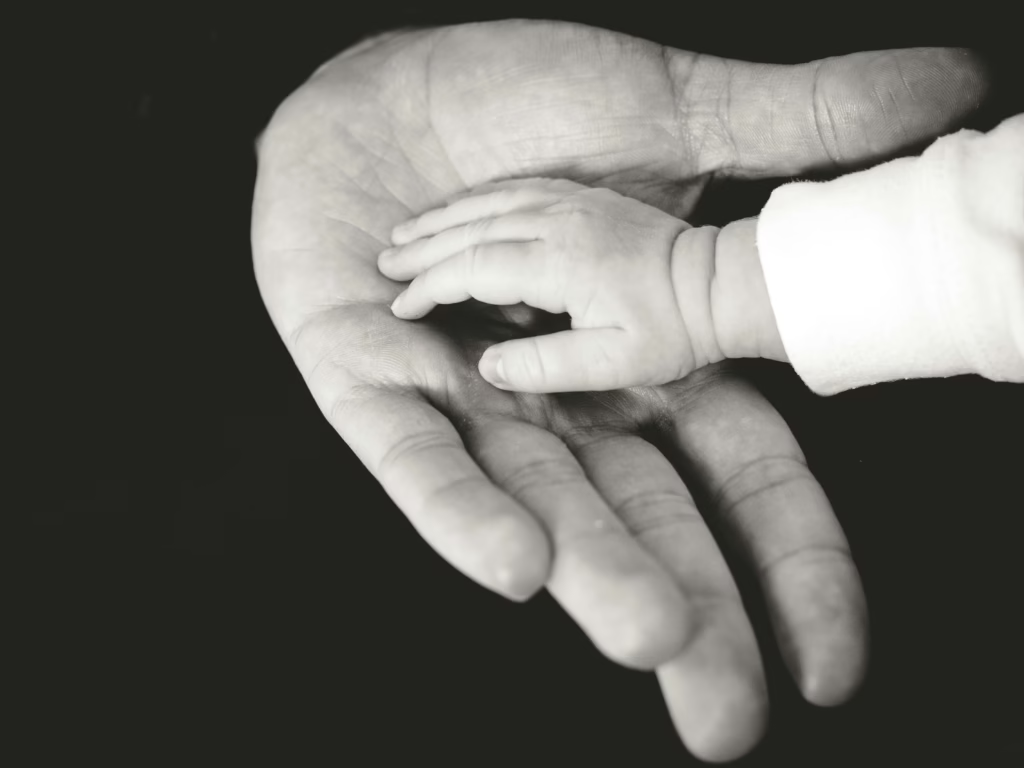Introduction
Egg donation has emerged as a life-changing pathway for countless individuals and couples struggling with fertility challenges. This compassionate act not only helps build families but also provides donors with meaningful financial compensation that can support their own life goals. With approximately 1 in 8 couples facing infertility in the United States, egg donation for money represents a mutually beneficial arrangement that creates opportunities for both donors and recipients.
In recent years, the conversation around egg donation has evolved significantly. What was once rarely discussed is now recognized as a vital component of assisted reproductive technology (ART) that helps build diverse families across different backgrounds, orientations, and circumstances. The financial incentives associated with donation acknowledge the time, commitment, and physical process that donors undergo.
While the compensation aspect is significant, it’s equally important to understand the ethical and legal frameworks that protect everyone involved in this deeply personal journey. Responsible egg donation prioritizes the wellbeing of donors while creating pathways to parenthood for recipients.
This comprehensive guide explores how egg donation for money can transform lives—helping donors achieve personal and financial goals while enabling others to experience the joy of parenthood. Whether you’re considering becoming a donor or are exploring options for family building, understanding this process can help you make informed decisions that align with your values and objectives.
What Is Egg Donation?
Egg donation is a medical procedure where a woman (the donor) provides some of her eggs, also called oocytes, to help another person or couple have a child. These donated eggs are combined with sperm through in vitro fertilization (IVF) and the resulting embryos are transferred to the recipient’s uterus or a gestational carrier.
The donation process involves several carefully managed steps. Initially, potential donors undergo comprehensive screening, including medical history reviews, physical examinations, psychological evaluations, and genetic testing. Once approved, donors begin a medication regimen to stimulate their ovaries to produce multiple eggs. This stimulation phase typically lasts 10-14 days and involves self-administered hormone injections that help multiple follicles develop simultaneously.
When the eggs reach maturity, they’re retrieved during a minor surgical procedure called transvaginal ultrasound aspiration. During this 20-30 minute procedure performed under sedation, a physician uses a thin needle guided by ultrasound to collect the eggs from the follicles. After collection, the eggs are evaluated by embryologists before being fertilized with sperm in a laboratory setting.
Why People Choose to Donate Eggs
Women choose to become egg donors for various reasons, often combining financial motivation with altruistic desires:
Financial reasons: The compensation for egg donation provides many women with resources to pursue education, reduce debt, achieve personal goals, or overcome financial challenges. This financial support can be life-changing for young women establishing their futures.
Desire to help others: Many donors feel deeply moved by the opportunity to help individuals or couples experience parenthood. This altruistic motivation often stems from understanding the emotional journey of those struggling with infertility or biological limitations.
According to the American Society for Reproductive Medicine, approximately 20,000 women donate eggs annually in the United States. Research published in the Journal of Human Reproduction indicates that while approximately 70% of donors are initially motivated by financial compensation, many report profound emotional satisfaction after completing the process, knowing they’ve helped create families.
How Money Helps Donors
The financial aspect of egg donation provides significant opportunities for donors to advance their personal and professional goals while helping others build families. This compensation acknowledges the time, commitment, and physical experience involved in the donation process.
Financial Incentives for Egg Donation
Compensation for egg donation typically ranges from $5,000 to $10,000 per donation cycle in the United States, with variations based on geographic location, clinic policies, and donor characteristics. According to the Centers for Disease Control and Prevention (CDC), this compensation framework is designed to acknowledge the approximately 50-60 hours that donors commit to the process, including medical appointments, procedures, and recovery time.
Beyond the primary compensation, donors generally receive additional benefits that include:
- Comprehensive health screenings and genetic testing (valued at $2,000-$4,000)
- Travel and accommodation reimbursements for non-local donors
- Medical insurance coverage specific to the donation process
- Compensation for time off work during appointments and recovery
These financial incentives are regulated by ethical guidelines established by the American Society for Reproductive Medicine to ensure compensation is reasonable and not coercive.
How Funds Can Fulfill Personal Dreams
The compensation from egg donation has helped many women achieve significant life goals:
- Financing higher education or advanced degrees without excessive student loan debt
- Launching entrepreneurial ventures or small businesses
- Paying off existing debts, including student loans or medical bills
- Making down payments on homes or securing stable housing
- Funding travel or career development opportunities
- Supporting family needs or addressing financial challenges
A 2019 study published in Fertility and Sterility found that 68% of egg donors used their compensation for educational expenses, while 31% applied it toward housing costs or saving for major life purchases.
Real-World Examples
Many donors have shared how egg donation compensation transformed their lives:
Melissa, a three-time egg donor, used her compensation to fund her graduate degree in social work without taking on additional student loans. “The money I earned through donation meant I could focus on my studies without working multiple jobs. Now I help families in crisis—so in a way, I’m still helping build and strengthen families.”
Another donor, Tasha, started a small graphic design business with her compensation. “I was able to purchase professional equipment and software that would have taken years to save for otherwise. Knowing my donation helped create a family while also launching my career feels incredibly meaningful.”
These examples illustrate how egg donation for money creates a unique win-win situation where donors can achieve personal milestones while helping others realize their dreams of parenthood.
How Egg Donation Fulfills Family Dreams
Egg donation has revolutionized family building options for many who previously had limited or no pathways to biological parenthood. This process addresses various fertility challenges and expands opportunities for diverse family structures.
Helping Couples and Individuals Become Parents
Egg donation serves as a vital solution for several groups:
Couples facing infertility issues: Women with premature ovarian failure, diminished ovarian reserve, poor egg quality, or genetic conditions that prevent using their own eggs can achieve pregnancy using donor eggs. According to the National Institutes of Health (NIH), age-related fertility decline affects many women, particularly after age 35, making egg donation an important option.
Same-sex male couples: For gay men pursuing biological parenthood, egg donation combined with gestational surrogacy creates a pathway to having children genetically related to one partner.
Single intended parents: Individuals pursuing parenthood without a partner can use donor eggs (with donor sperm for single men) to create their families.
Women who have undergone cancer treatments: Chemotherapy and radiation can damage ovarian function, making egg donation a hope-restoring option for cancer survivors.
Success Rates and Impact
Egg donation significantly improves the chances of successful pregnancy compared to IVF using a woman’s own eggs, particularly for those with advanced reproductive age or certain fertility conditions.
According to the Society for Assisted Reproductive Technology (SART), IVF procedures using fresh donor eggs have success rates of approximately 50-60% per transfer, compared to national average success rates of about 20-35% for IVF using a woman’s own eggs, depending on age.
The CDC reports that approximately 12% of all IVF cycles in the United States use donor eggs, resulting in thousands of births annually. These statistics represent countless families who might not otherwise have experienced parenthood.
Case Studies
Sarah and Michael tried to conceive for seven years, enduring four miscarriages and three failed IVF attempts. After learning Sarah had premature ovarian failure, they decided to pursue egg donation. “When we held our daughter for the first time,” Sarah shares, “all the years of heartbreak seemed to melt away. Our donor gave us a gift we could never fully repay.”
For David and James, a same-sex couple, egg donation combined with surrogacy created their family of four. “We found an amazing egg donor who shared many of our physical characteristics,” explains David. “Knowing our children carry a biological connection to our family while being carried by a surrogate who cared deeply about helping us become parents has been a beautiful journey.”
These stories highlight how egg donation creates profound impacts beyond the financial transaction, generating ripples of joy that extend through generations.
The Ethical and Legal Side of Egg Donation
While egg donation for money creates meaningful opportunities, it exists within important ethical and legal frameworks designed to protect all parties involved. Understanding these considerations helps ensure the process remains respectful and beneficial for everyone.
Key Ethical Concerns
Several ethical principles guide responsible egg donation practices:
Informed consent: Donors must receive comprehensive information about the medical procedures, potential risks, time commitment, and emotional aspects of donation. The American College of Obstetricians and Gynecologists (ACOG) emphasizes that donors must understand both short and long-term implications of their decision.
Donor anonymity vs. openness: Practices around donor identity have evolved significantly. While anonymous donation was once standard, many programs now offer options ranging from completely anonymous to known donation to identity-release programs where offspring can access donor information upon reaching adulthood. This spectrum allows donors and recipients to select arrangements aligned with their values.
Appropriate compensation: Financial incentives should recognize donors’ time and effort without being coercive. Compensation models aim to acknowledge the physical and emotional aspects of donation without creating undue influence on decision-making.
Psychological support: Ethical donation programs include counseling for donors to process the emotional dimensions of their experience and prepare for potential future feelings about their donation.
Legal Protections for Donors and Recipients
The legal landscape surrounding egg donation varies by location but generally addresses:
Compensation regulations: The Food and Drug Administration (FDA) oversees certain aspects of egg donation, including donor screening and testing, though compensation itself is primarily governed by professional guidelines rather than federal law.
Parental rights: Legal contracts clearly establish that donors relinquish all parental rights to any children born from their donated eggs. These agreements protect both donors and intended parents
Future contact provisions: Legal frameworks may include stipulations about potential future contact between donors, recipients, and donor-conceived individuals, often taking into account changing perspectives on donor anonymity.
Medical coverage: Contracts typically outline insurance coverage for any medical complications related to the donation process.
Tips for Safe Donation
For those considering egg donation for money, these practices promote safety and positive experiences:
Research clinics thoroughly: Investigate success rates, donor compensation policies, and clinic reputations. The CDC’s Fertility Clinic Success Rates Report provides validated data on clinic outcomes.
Ask detailed questions about protocols: Understand the medication regimens, monitoring processes, and what happens if complications arise.
Seek independent legal counsel: Consider consulting an attorney specializing in reproductive law to review contracts before signing.
Clarify health screening and follow-up care: Ensure the clinic provides comprehensive health screening before donation and appropriate follow-up care afterward.
Consider the emotional aspects: Reflect on your feelings about potentially having genetic offspring that you won’t parent and how you might feel about this in the future.
- Actionable Steps for Aspiring Donors and Recipients
Whether you’re considering becoming an egg donor or are exploring egg donation as a path to parenthood, understanding the practical steps involved helps create a positive experience for everyone involved.
For Women Considering Egg Donation
If you’re interested in exploring egg donation for money, these steps will guide your journey:
Understand the health requirements: Most clinics look for donors between 21-32 years old with good physical and psychological health. Basic requirements typically include a healthy BMI, no reproductive disorders, no family history of genetic conditions, and no substance abuse issues.
Research clinics and agencies: Look for established organizations with transparent compensation policies and comprehensive donor support. The Society for Assisted Reproductive Technology (SART) offers resources for identifying reputable clinics.
Prepare for screening: The screening process typically includes:
- Medical history review
- Physical examination
- Psychological evaluation
- Genetic testing
- Infectious disease screening
- Drug testing
Consider the time commitment: The entire process, from application to retrieval, typically takes 3-6 months and includes multiple medical appointments
Understand compensation structures: Ask detailed questions about when and how payment occurs, what expenses are covered, and what happens if a cycle is canceled for medical reasons.
For Families Seeking Donor Eggs
If you’re exploring egg donation as a path to parenthood:
Find reputable clinics: Research success rates, costs, and donor pool diversity. Ask about how donors are screened and what information you’ll receive about potential donors.Understand the financial landscape: The total cost for egg donation typically ranges from $25,000-$50,000, including donor compensation, medical procedures, medications, legal fees, and agency fees if applicable. Investigate whether your insurance offers any coverage and explore financial assistance programs.
Consider your preferences regarding donor selection: Reflect on what characteristics matter most to you and whether you prefer anonymous donation or arrangements with varying degrees of openness.
Prepare for the emotional journey: Working with a mental health professional experienced in reproductive issues can help you process feelings about using donor eggs and prepare for discussing donor conception with your future child
Secure legal representation: Work with an attorney specializing in reproductive law to ensure proper contracts are in place regarding parental rights and responsibilities.
Resources and Support Networks
Several organizations provide guidance and community for those involved in egg donation:
American Society for Reproductive Medicine (ASRM) – Offers medical guidelines and educational resources.
RESOLVE: The National Infertility Association – Provides support groups, educational resources, and advocacy for those experiencing infertility.
Parents Via Egg Donation (PVED) – Offers resources specifically for families built through egg donation.
Society for Ethics in Egg Donation and Surrogacy (SEEDS) – Promotes ethical standards in third-party reproduction.
Mental health professionals specializing in reproductive issues can provide valuable support for both donors and recipients throughout the process.
Conclusion
Egg donation for money represents a powerful intersection of compassion and opportunity that transforms lives on multiple levels. For donors, the financial compensation acknowledges their generous contribution while providing resources to pursue educational goals, career aspirations, or personal dreams. This compensation is not merely payment for a service but recognition of a profound gift that requires time, physical commitment, and emotional maturity.
For recipient families, egg donation offers hope when other paths to parenthood have been exhausted or aren’t possible. The joy of welcoming a child—often after years of heartbreak and uncertainty—creates ripple effects of happiness that extend through generations. While the financial component facilitates this exchange, the human connection at its core transcends monetary value.
As with any significant medical decision, egg donation requires careful consideration of ethical dimensions and legal protections. When approached thoughtfully, with proper guidance and support, the process can honor the needs and boundaries of all participants. The evolution of practices around disclosure, identity, and openness continues to reflect our growing understanding of how donor conception impacts families and individuals over time.
Whether you’re considering becoming an egg donor to help others while achieving your own goals, or you’re exploring egg donation as a pathway to parenthood, approaching this journey with accurate information and emotional preparedness can help ensure positive outcomes. Through responsible egg donation practices, dreams of building families and advancing personal aspirations can become beautiful realities.
Frequently Asked Questions
How many times can a woman donate eggs in her lifetime?
Most reputable clinics and the American Society for Reproductive Medicine recommend limiting egg donations to six cycles per donor. This guideline exists to protect donor health and reduce the number of genetic siblings created from a single donor. However, practices vary between clinics, and some may set lower limits. Donors should discuss this aspect with potential clinics and consider both short and long-term health implications before completing multiple donation cycles.
Will donating eggs affect my future fertility?
Current research indicates that egg donation does not typically impact a woman’s future fertility. The eggs retrieved during donation are those that would naturally be lost during that month’s menstrual cycle. A study published in the journal Fertility and Sterility found no significant decrease in ovarian reserve or fertility after egg donation. However, as with any medical procedure, there are risks such as ovarian hyperstimulation syndrome (OHSS) that could potentially impact reproductive health if severe or not properly managed.
Is egg donation tax-free income?
In the United States, compensation received for egg donation is generally considered taxable income according to a 2015 U.S. Tax Court ruling. Donors should consult with a tax professional regarding their specific situation, as some medical expenses or travel costs related to donation might qualify for deductions. Keeping detailed records of all donation-related expenses is advisable for tax purposes, and donors should prepare to receive a 1099 form from the clinic or agency that provided their compensation.
Can I donate eggs if I have a family history of genetic conditions?
Having a family history of genetic conditions does not automatically disqualify someone from egg donation, but it does require careful screening. Clinics conduct thorough genetic testing and evaluation of family medical history. Conditions that are autosomal dominant or have high penetrance may disqualify a donor, while carriers of recessive conditions might still be eligible if recipients are screened to ensure they don’t carry the same condition. Each clinic has specific protocols based on genetic counseling standards and recipient safety considerations.
What emotional support is available for egg donors before, during, and after the process?
Most reputable donation programs provide comprehensive emotional support throughout the donation journey. This typically includes mandatory pre-donation counseling with mental health professionals specializing in reproductive issues to explore motivations and ensure informed consent. During the process, donor coordinators provide ongoing support and address concerns. After donation, follow-up counseling is often available, though sometimes limited. Some clinics also connect donors with support groups or online communities where they can share experiences with others who understand this unique journey.






